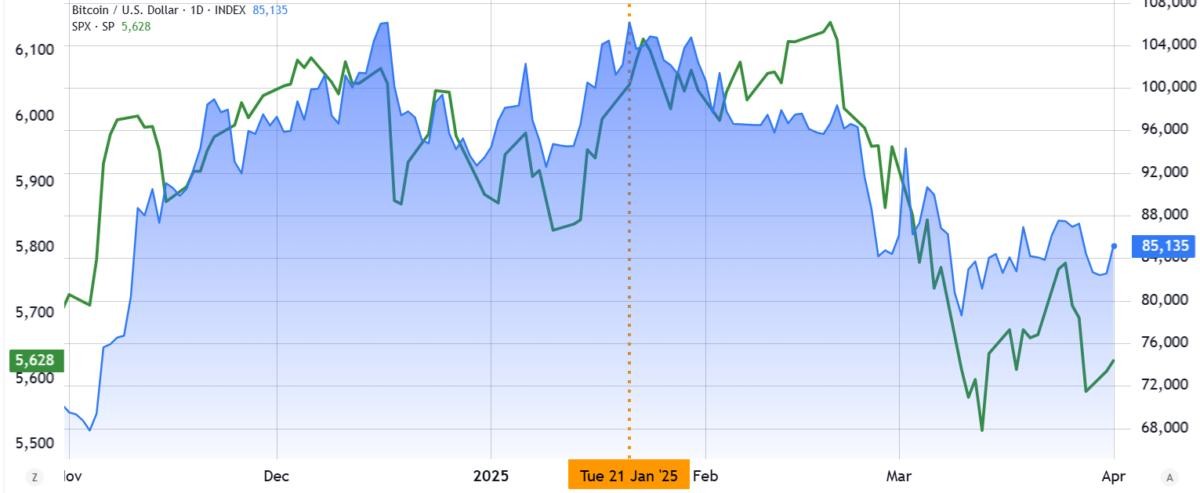
Bitcoin's recent price struggles below $89,000 have been hastily blamed on the US-led tariff war, but a deeper analysis reveals multiple underlying factors were already affecting the cryptocurrency's performance before the trade tensions escalated.
While Bitcoin managed a modest 2.2% gain on April 1, it has consistently failed to break above $89,000 since early March. Market analysts point out that BTC showed limited upward momentum even before President Trump announced the 10% Chinese import tariffs on January 21.
The timing of events weakens the trade war narrative. The S&P 500 index reached record highs 30 days after trade tensions began, while Bitcoin had already struggled to maintain prices above $100,000 in the preceding quarter.
Institutional interest remained strong despite trade tensions, as evidenced by $2.75 billion in net inflows to spot Bitcoin ETFs during the three weeks following the tariff announcement. Strategy's substantial $5.25 billion Bitcoin purchases since February have helped maintain support at $80,000.
A key factor weighing on Bitcoin's performance has been the moderation of inflation rates. February's US Personal Consumption Expenditures Price Index showed a 2.5% year-over-year increase, while the eurozone's March Consumer Price Index rose 2.2%. These figures suggest central banks' monetary policies are achieving their intended effects.
The cryptocurrency market has also been impacted by shifting macroeconomic conditions. February's US job openings hit near four-year lows, while yields on 2-year Treasury bonds declined to six-month lows at 3.88%. These indicators point to growing risk aversion among investors.
Market disappointment also stems from unrealized expectations regarding President Trump's campaign promise of a "strategic national Bitcoin stockpile," which culminated in an executive order on March 6 that fell short of trader hopes.
The evidence suggests Bitcoin's price weakness is rooted in a combination of controlled inflation, changing risk appetites, and unfulfilled market expectations, rather than solely the impact of trade tensions.